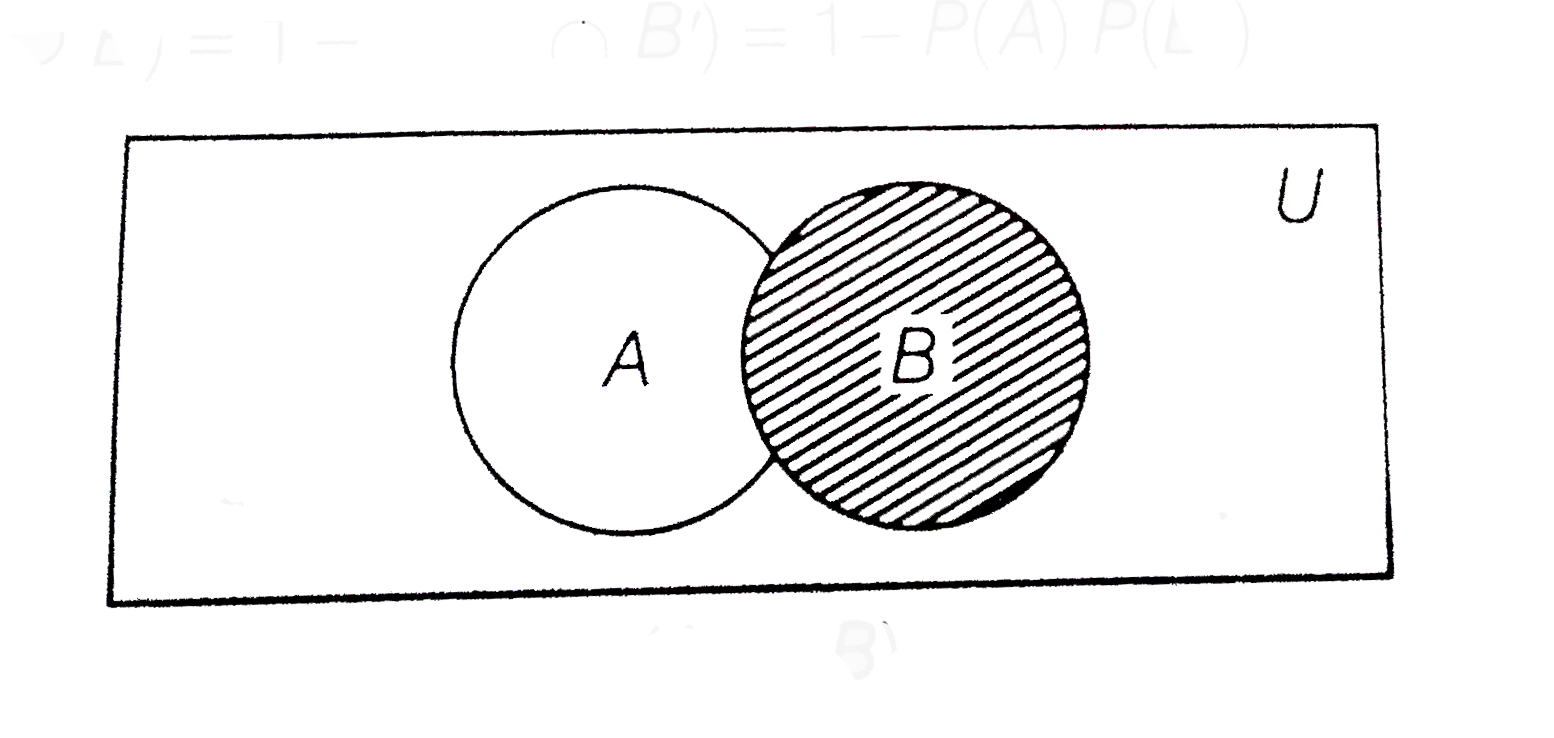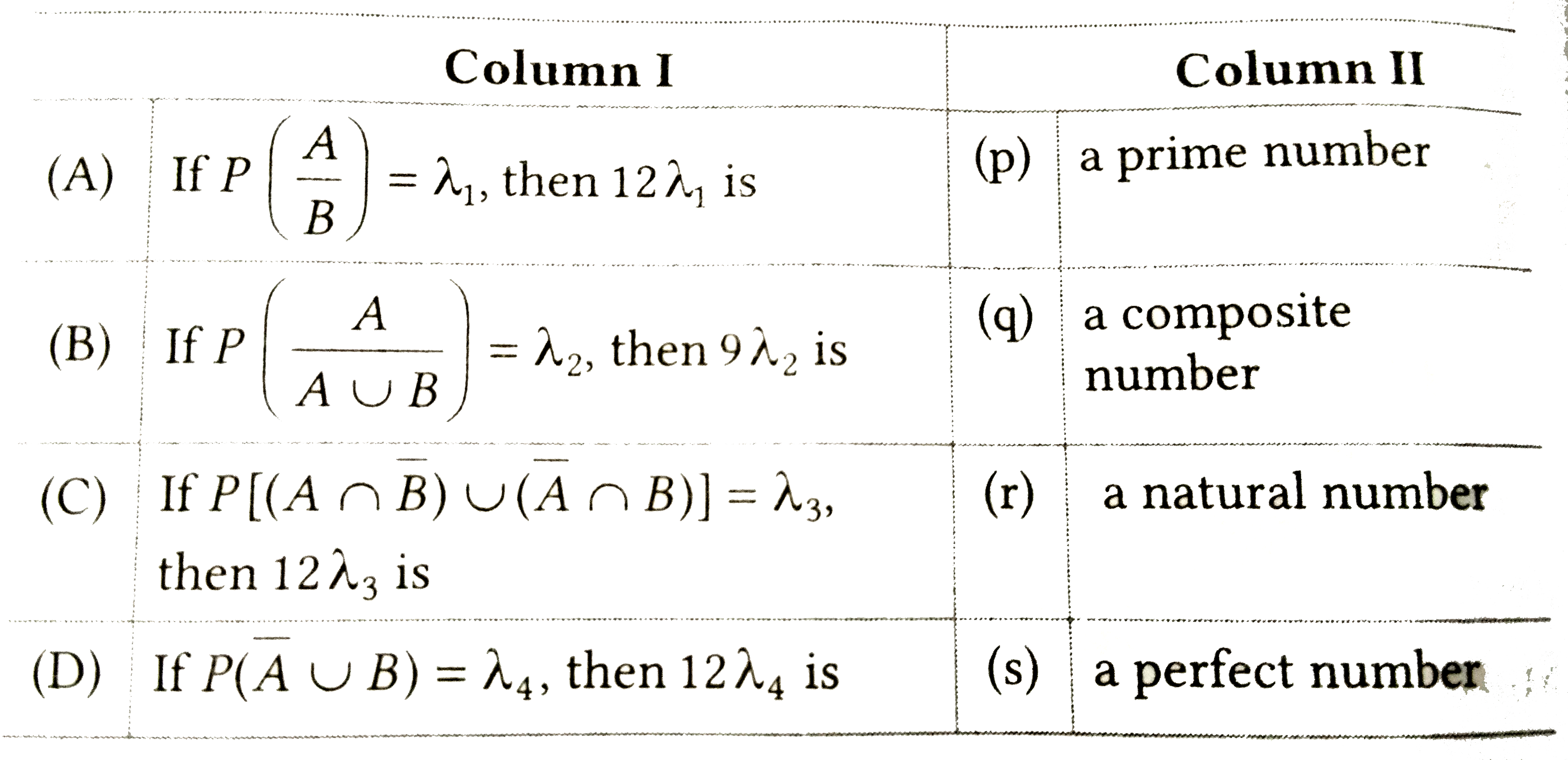If A and B' are independent events, then P(A'∪B)=1−P(A)P(B').
Video Solution
Text Solution
True
P(A'∪B)=1−P(A∩B')=1−P(A)P(B')

|
Topper's Solved these Questions
- PROBABILITYBOOK - NCERT EXEMPLAR ENGLISHCHAPTER - PROBABILITYEXERCISE - Objective Type Questions
38 Videos
- MATRICESBOOK - NCERT EXEMPLAR ENGLISHCHAPTER - MATRICESEXERCISE - Solved example
101 Videos
- RELATIONS AND FUNCTIONSBOOK - NCERT EXEMPLAR ENGLISHCHAPTER - RELATIONS AND FUNCTIONSEXERCISE - Fillers
15 Videos
Similar Questions
Knowledge Check
If A and B are independent events thenP(A∩B) is equal to
AP(A)+P(B)BP(A)−P(B)CP(A).P(B)DP(A)P(B)If A and B are two independent events with P(A) =13andP(B)=14 , then P(B/A) is equal to
A14B13C34D1
Statement -1 : if A and B are exhaustive events, then P(A∪B)=1
Statement-2 If A and B are independent then P(A∩B)=P(A).P(B)
View SolutionIf P(not B) = 0.65, P(A∪B)=0.85 and A and B are independent events, then find P(A).
View SolutionIf A and B are two independent events, prove that P(A∪B).P(A'∩B')≤P(C), where C is an event defined that exactly one of A and B occurs.
View SolutionIf A and B are two independent events, prove that P(A∪B).P(A'∩B')≤P(C), where C is an event defined that exactly one of A and B occurs.
View SolutionIf P(A)=25 and P(B)=13 and A and B are independent events, then find P(A∩B).
View SolutionIf A and B are two independent events, such that P(A)=13andP(B)=14.

View Solution
